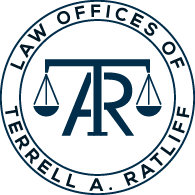Title IX Overview
Title IX is a federal civil rights law in the United States, enacted as part of the Education Amendments of 1972. It states:
“No person in the United States shall, on the basis of sex, be excluded from participation in, be denied the benefits of, or be subjected to discrimination under any education program or activity receiving Federal financial assistance.”
This law applies to schools, colleges, and universities receiving federal funding, and it is designed to ensure gender equity in educational programs, sports, and activities. Title IX addresses issues such as:
- Sexual harassment and sexual violence
- Gender-based discrimination
- Inequity in athletics programs
- Discrimination against pregnant or parenting students
- Retaliation for filing Title IX complaints
Cases That Fall Under Title IX
- Sexual Harassment or Assault: Claims involving sexual harassment, misconduct, or violence between students, staff, or faculty within an educational institution.
- Unequal Athletic Opportunities: Cases where male and female students are not provided equitable opportunities in sports programs.
- Pregnancy Discrimination: Discrimination against students based on pregnancy, childbirth, or parenting responsibilities.
- LGBTQ+ Discrimination: Cases involving discrimination against individuals based on their sexual orientation or gender identity.
- Retaliation: Instances where someone faces adverse consequences for reporting a Title IX violation or participating in an investigation.
Frequently Asked Questions (FAQs)
Q1: Does Title IX apply to private schools?
A: Yes, if the private school receives federal funding, it must comply with Title IX.
Q2: What protections does Title IX provide for student-athletes?
A: Title IX ensures that male and female student-athletes have equal access to facilities, scholarships, coaching, and participation opportunities.
Q3: Can Title IX be applied to cases of sexual violence?
A: Yes, Title IX mandates that educational institutions take prompt and effective steps to respond to and resolve cases of sexual violence.
Q4: Who can file a Title IX complaint?
A: Any individual who believes they have experienced or witnessed discrimination, harassment, or retaliation under Title IX can file a complaint with the educational institution or the U.S. Department of Education’s Office for Civil Rights (OCR).
Q5: What should I do if I believe my rights under Title IX have been violated?
A: Document the issue, report it to the institution’s Title IX Coordinator, and consider consulting an experienced attorney to understand your legal options.
Conclusion
Understanding your rights under Title IX is crucial for ensuring equal treatment and protection in educational environments. Whether you’re facing discrimination, harassment, or retaliation, knowing the law can empower you to take the necessary steps to defend your rights.
For personalized legal support in navigating Title IX cases, contact The Law Office of Terrell A. Ratliff.
